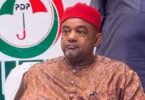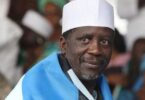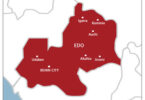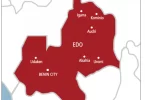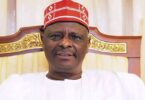Human rights crusader and public commentator, Senator Shehu Sani, in this interview, spoke on insecurity, poverty, general backwardness in the North among other issues. Excerpts:
THERE seems to be a resurgence of suicide bombings in the North, what do you think is reason for this?
The issue of suicide bombing or terrorism in the North-Eastern part of Nigeria, particularly in Borno State, has been with us for over a decade. Everywhere in the world, fighting terror is not a 24-hour operation. To understand what is happening in Borno State, it is important to examine the journey so far. You recall that the killing of the leader of Boko Haram, Mohammed Yusuf, sometimes in 2009/2010, led us to where we are today. During the time of President Goodluck Jonathan, our cities, particularly those in the North were unsafe; there were bombings in mosques, bombing in churches, in supermarkets, markets. Then came President Muhammadu Buhari for an eight-year tenure; he inherited terrorism and he left the country in the hands of both terrorists and bandits. Under Jonathan, the cities were unsafe and under Buhari, rural areas became unsafe. It is no more about bombing but kidnapping, it’s about killings, slaughtering of farmers and attack on schools, that was the case for eight years. This is what this administration inherited. If I’m going to give an example of how things are, I will make example with my state, Kaduna. And all I know is that, in the last more than one year, there has been one school, which is a primary school in Kurida, in Tuku local government area, that was attacked. Within that period under Buhari, we had attacks on high schools; students were kidnapped, ransom was paid by parents. We had an attack on Greenfield University in Kaduna, students were kidnapped and they had to pay over N200billion as ransom, Federal School of Agriculture Mechanisation in Mando, within Kaduna city, was attacked, and parents had to pay ransom. There was an attack on Kaduna State Polytechnic. The Nigerian Defence Academy was also attacked. And I can also remember that there were attacks and kidnappings on the Kaduna – Abuja road almost on a daily basis. You can also remember the attack on the train in Kaduna. So, for us, when I say that the situation is comparatively better now than it used to be, I back it up with statistics.
The bombing in Borno is a continuation of the terror activities of Boko Haram group and I believe that if you look at the local governments that have been under occupation or domination by terror groups, you will see that Gwoza, at least has remained as one of the local governments liberated. I have seen the governor of Borno State most times visiting some of these local governments and I have seen also the fact that some of these terror kingpins were eliminated but you can’t end terrorism within 24 hours. Some of these attacks by terrorist groups are something we have to live with until the time we succeed with terrorism. But terror attacks by female bombers and other attacks on schools and crowded locations of soft targets are something we have been seeing for some time now. So, it is a message to us that vigilance and continuous efforts by our security forces is very important and we shouldn’t be complacent.
How worried are you about the future of the North, considering issues of insecurity, high number of out of schoolchildren, weaponization of poverty?
I come from Northern Nigeria, particularly Kaduna State. If there is a place that I would love to see people prosper and live in peace and harmony and be able to go about their daily business freely, it is where I come from. But the situation in the northern part of Nigeria actually is a product of failure of governance and leadership that has happened in this country for over three to four decades. Political power that ought to have been used by people who come from our own part of the country, to improve on the economy, to better the lives of people to address the problems of poverty, destitution, and under -development in general has actually been utilised for other purposes. Yes, we have some of the richest businessmen, richest politicians in the country, but the level of poverty you see is a reflection of what leadership and the opportunity of power was used for. In all indices, the North lags behind. And then sometimes you ask, what has all this power been used for? That’s why I think if any person will compare what is happening in the North to the Southern part of Nigeria, he will wonder if actually power has not been toxic to our people. It has not been used for the benefits of our people for a very long time. Look at the child mortality rate, look at the out-of-school children statistics, poverty statistics in northern Nigeria, insecurity, banditry in the Northwest, and then terrorism in the North-eastern part of Nigeria. Educationally, the North has been backward even from Independence. With efforts being made by the likes of Sarduana and subsequent leaders, at least there is some appreciable level of development, but we’re still lagging behind.
Now, the next thing is insecurity. Most schools in rural areas in northern Nigeria have closed down as a result of activities of terror groups in Northeast and north-western part of Nigeria. When we had someone from this zone take over the reins of leadership, there was so much hope and expectations. We thought this issue of insecurity will be addressed, issue of out-of-school children, poverty, but eight years later, that was not the case. So, to me, I think the North and our people need to do soul searching. If you want power, you should have an agenda. You should have a programme, you should have policies, you should have known the problems and solutions to such problems. This is what power should be used for. Destitution in the North is not only a threat to the people but of the whole country, for example, in Zamfara State, if you are kidnapped from Niger State, you are most likely to be transported by bikes. If you are kidnapped from Kaduna State, they take you to Zamfara State to get refuge there, because it has become a hub full of terror groups in the North-western part of Nigeria. The expectation from many people was that when there is an opportunity to have someone from a zone take over the reins of leadership, he understands the problem of the zone and can solves them.
At a certain time in the history of this country, all the security apparatus from the Army, Navy, Police, Air Force, Civil Defence, paramilitary groups -our military institutions, like Customs, Immigration, Prison Service and even the Department of State Services (DSS) were all manned by northerners. What came out of that? The situation even became worse. The North has the potential of being the richest part of the country. We have the largest landmass, almost 65 percent of Nigeria. We have the population. We have an arable land, we have the best of vegetation, we have resourceful people who can do well for Nigeria and the world. All that is needed is to harness the resources.
President Buhari appointed virtually all military and paramilitary chiefs from the North, and attracted criticisms for constituting a lopsided government. What do you make of appointments by the President Tinubu administration?
I will advise President Tinubu to be careful not to make the mistake of President Buhari and I believe he is experienced enough to understand this. Under President Buhari, you had ministers that were appointed into office for eight years. There was no cabinet reshuffle, no removal. It sometimes took a month to four months to replace a minister, that was the way the country was governed. Now, it is important for any person who wants to preside over a complex country like ours, a diverse country and multicultural, multi-region country like ours, to take cognizance of the fact that if he is interested in results; then competence should be his watchword. He should also appoint people who are competent who can deliver and who have the knowledge of where they are going to be assigned to. We had a minister of Education who said he knew nothing about education yet was appointed to serve. I think if a leader wants to succeed, the first thing he should do is he must make sure that people who are around him should have something to deliver in line with his vision, in line with his own focus and interest in terms of moving the country forward and delivering the services they were meant to carry out. Under Buhari, we saw nepotism at its peak. In the case of Bola Tinubu, it’s just one year in office, but I think he is there as a witness to see how people were appointed into office simply for the fact that they were loyalists and they delivered nothing and the government ended up in jeopardy. If you remember what happened with the service chiefs, they were retained in office despite their failure and by retaining them, you destroy the career of those who are behind them for many years. Many officers were retired in order to appoint one person and when that person is appointed and his time due, he was still retained and, in the process, many officers were also dismissed as a result of that. So, if this country has to move forward, then we must treat the issue of competency as qualification for appointment. Naturally, if you are a politician, the first thing you think about when you win are those who worked for you.
Is the North presently happy with President Tinubu, going by the state of things in the country?
Well, I think that question can be answered by the Arewa Consultative Forum or the Northern Elders or any person who has the command to speak on behalf of the North which of course, there is none. All I know is that generally in the country, people are feeling the pains of economic reforms; there is poverty, hunger, there is hardship. But we have been assured that it is the inconvenience of construction site and you cannot quantify or determine by saying this is the beauty of a building when it is still going on under construction. So one year is still time, there’s still time, and I believe that is not just enough, but in most parts of the country, people are not happy because of the economic situation in the country. But it’s a natural thing with reforms in Indonesia, Singapore, in Brazil and Argentina. But once the result comes with beautiful food, sweet foods, people will change the opinion. So, when you are building a house, there’ll be inconvenience. I believe this is what we’re facing. So people are not happy because subsidy has been removed and there’s so much poverty but if government can address the problem of poverty as they unfold their programme like the conditional cash transfer and increase in wages, I believe that hopefully things will change.
At a recent forum, Minister of the Federal Capital Territory (FCT), Nyesom Wike questioned you how much contribution you made to make Nigeria better, when you were in the Senate
Wike is my good friend, I would have preferred to reply him in an event rather than on television and I think I have attended two events where he strategically placed himself to speak last and make sure that nobody replies. I believe that when an opportunity comes next, I’m going to take him on, but nobody can demean the struggle, which we did to free Nigeria from military dictatorship. Mike Ozekhome was a patriot; if not for the struggle we did to destabilize the military dictatorship in Nigeria and restore democracy in Nigeria, people like Wike couldn’t have been a local government chairman, governor or minister today. He’s a beneficiary of our struggle and sweat and all that we have invested in it. And there was a certain time I was in Port Harcourt as a political prisoner. Where was he at that very time? But I think what he said, though people have over blown it is that there are gains in democracy. It is not only about condemnation, and in my own case, what is it? It is about what have we done in the Senate? It wasn’t specific, he was talking in general terms. So, I can take that personally, but I will say that he is a beneficiary of the struggle, which Nigerians have committed and dedicated their life to and I hope he will understand. But I believe that next time we go to an event since I know his formula of speaking last and then closing the chapter and everybody should go, it will never happen. He will certainly get reply; he knows me very well and it’s even later I learned that we are age mate, but I believe that he will get my reply next time we find ourselves in any forum.
ALSO READ: Stakeholders seek Makinde’s intervention as health workers’ strike enters 60 days


